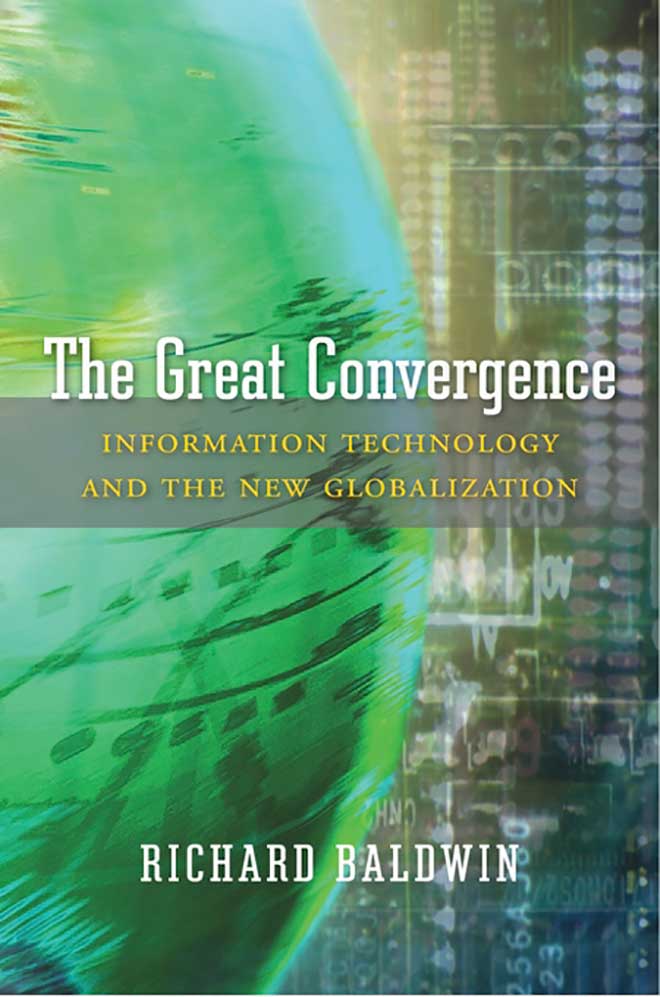
A book worth reading to understand globalisation’s past and peer into its future.
The next trade revolution is already upon. But unlike in the past, this time it’snot the transfer of goods that is changing, it’s the transfer of ideas. These changes are all thanks to information technology and digitalization, which taken together are radically transforming globalisation. Richard Baldwin, a professor of international economics at the Graduate Institute of International and Development Studies in Geneva, has published one of the most important books of the decade. In The Great Convergence: Information Technology and the New Globalization, Baldwin doesn’t just analyze what happened over the course of the last centuries, he even manages to draw a conceptual map of what will happen in the years to come.
The starting point of The Great Convergence is to explain why humans engage in trading, and how they transform trade to suit evolving societies. In 1800, for example, globalisation was enhanced by the use of steam-driven means of transport and by the peace that ended with the First World War. More efficient shipping and haulage methods and security among nations lowered the cost of transferring goods among nations. This is what Baldwin defined as the “Great Divergence”. With the spread of the internet, on the other hand, the exact opposite process is underway. Goods, but more importantly ideas, can travel from country to country at very little cost. The result? Improved well-being on a very large scale. Baldwin reminds us that with this wave of globalisation, if we wish to, we all stand to gain.
The Great Convergence: Information Technology and the New Globalization
Richard E. Baldwin
344 pp.
Belknap Press
To keep reading, purchase the pdf file of this issue
To subscribe to the magazine please access our subscription page here
A book worth reading to understand globalisation’s past and peer into its future.






